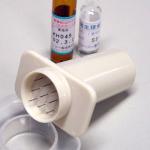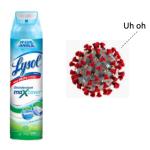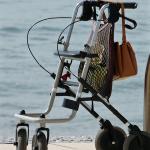Early in the COVID-19 pandemic, public health officials noticed something strange: Countries that still used the BCG vaccine against tuberculosis had fewer infections and deaths from coronavirus.
COVID-19
It's been pretty much impossible to buy a can of Lysol spray since the COVID nightmare began about seven months ago.
The researchers made use of data from the National Health and Aging Trends Survey, a representative sample of Medicare enrollees over age 65. Frailty remains an ill-defined syndrome, a constellation of subjective and objective findings.
By William Petri, University of Virginia
While Americans were (sort of) celebrating the Fourth of July, the coronavirus kept raging on. Some relevant developments and analysis have occurred in the past few days that might shed a little more light on how the pandemic will unfold.
ACSH advisor Dr.
I have previously written on the physics of direct contact, which pertains to how much attention we need to pay to wipe down packages and surfaces.
Without a mask, droplets can travel up to 8 feet. Here are the visualizations for three off-the-shelf alternatives, a surgical type mask available at pharmacies, a folded hankerchief, and a two layer home-made cotton mask.
What's the best way for young people to avoid having babies and acquiring undesirable microbial species in their nether regions? Abstinence. It works every single time. Young people should wait until they're married.
This article was originally published at Geopolitical Futures. The original is here.












